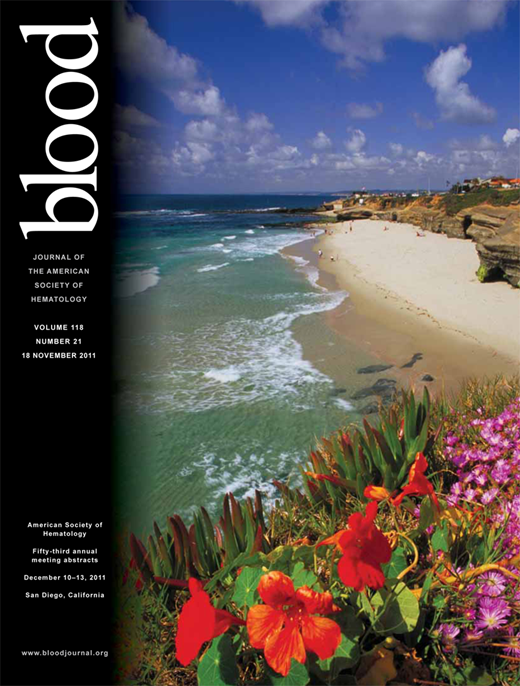Abstract
Abstract 3439
Deficiency of ribosomal protein (RPs) is associated with Diamond Blackfan Anemia, (DBA) a congenital syndrome with bone marrow failure and variable malformations. Recent studies of ours and other labs established p53 network activation as a major contributor to DBA. Therefore, modulation of p53-dependent pathways emerges as a most promising approach to DBA treatment. Direct suppression of 53 may, however, lead to increased risk of malignant transformation. Search for more physiological modulators of p53 pathways is therefore warranted. p53 has been shown both to respond to metabolic alterations and to change metabolism. Specifically, nutrients can influence p53 status through mTOR and other pathways. Recently, Ortega et al reported that treatment of Caco-2 cells with exogenous nucleosides modulated expression and activity of many transcription factors including p53 (J Nutr Biochem, 22:595, 2011). We applied treatment with exogenous nucleosides to RP-deficient zebrafish and found positive effects. As a DBA model, we use zebrafish mutant for ribosomal protein RPL11; we also employ morpholino nucleotides to create deficiency of various ribosomal proteins including RPS19. Treatment of both models resulted in inhibition of p53-dependent pathways. Specifically, expression of genes associated with cell cycle arrest such as p21 and p53 targets inducing apoptosis such as puma, was decreased by nucleoside treatment. We hypothesize that nucleoside treatment affects p53 by modulating the activity of mTOR and MEK/Erk pathways. Previously, Gu et al. showed that nucleotide depletion strongly inhibited mTOR and activated MEK/Erk. We also study how nucleoside treatment influences other stress-response pathways and affects interaction of p53 and mTOR pathways. Our data indicate that nucleosides may be effective in modulation of p53-dependent signal transduction pathways and suggest their usefulness for treatment of p53-associated disorders.
Sakamoto:Abbott: Research Funding; Genentech: Research Funding.
Author notes
Asterisk with author names denotes non-ASH members.

